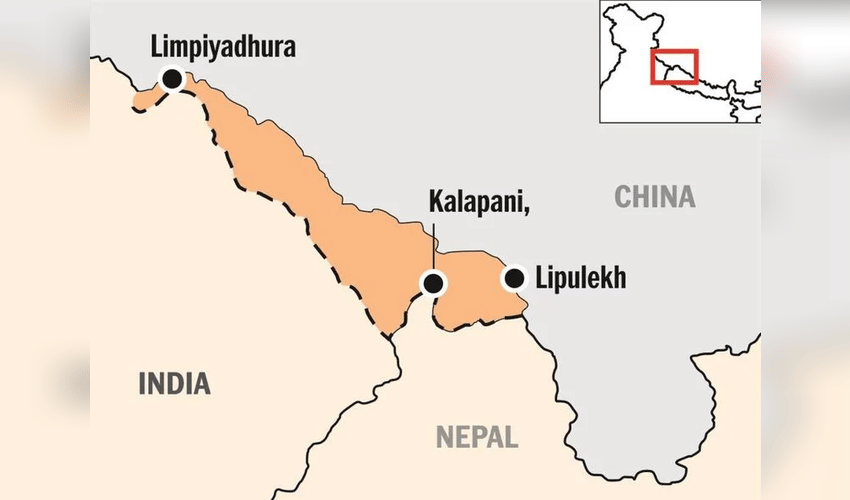World
India Firmly Rejects Nepal's Claims over Lipulekh Trade Route with China, Calls Them Unfounded

India has strongly dismissed Nepal’s objections to the reopening of border trade with China through the Lipulekh Pass, describing Nepal’s territorial claims as baseless and untenable. The Lipulekh Pass, situated on the India-China border in Uttarakhand, has been a historically active trade route between India and China since 1954. However, disputes reignited recently as Nepal claims the region, including Limpiyadhura and Kalapani, as part of its sovereign territory.
The Indian Ministry of External Affairs clarified that the border trade between India and China via Lipulekh Pass has been ongoing for decades, temporarily disrupted only by circumstances like the Covid-19 pandemic. The ministry reaffirmed that Nepal’s claims lack historical foundation and evidence and labeled any unilateral expansion of territorial claims as unacceptable. India emphasized its willingness to engage in diplomatic dialogue with Nepal to address outstanding boundary issues but dismissed the current objections as politically motivated and unfounded.
Nepal’s protest comes in response to India and China jointly agreeing to resume trade through three border points—Lipulekh Pass in Uttarakhand, Shipki La Pass in Himachal Pradesh, and Nathu La Pass in Sikkim—announced during a recent visit by the Chinese Foreign Minister to India. Kathmandu has repeatedly asserted that Lipulekh, Kalapani, and Limpiyadhura are integral parts of Nepal according to the historical Sugauli Treaty of 1816, leading to heightened tensions after India published a political map incorporating these areas within its borders.
In the larger context, this dispute underscores the complex nature of Himalayan border agreements involving India, Nepal, and China, where historical treaties, geographic interpretations, and strategic interests intersect. While the reopening of the trade routes is seen by India and China as a step toward economic cooperation, Nepal views it through the prism of sovereignty and territorial integrity, leading to ongoing diplomatic challenges. The India Ministry of External Affairs has reiterated that it remains open to constructive dialogue to resolve border issues amicably, highlighting that international relations in such sensitive areas require consistent, evidence-based discussions rather than unilateral claims or actions.
This dispute over the Lipulekh Pass, therefore, remains a delicate subject requiring careful navigation by the involved countries to maintain peace and collaboration in the region while respecting national sovereignty claims. This balanced understanding serves to keep readers informed of the historical, political, and diplomatic facets surrounding the Lipulekh trade route controversy, emphasizing ongoing efforts and challenges in resolving this long-standing Himalayan boundary issue.



